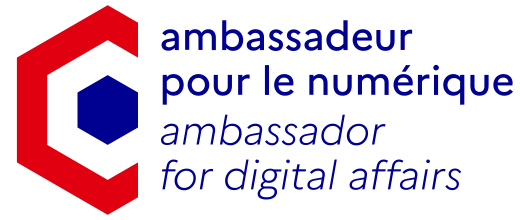Prevention tools
Table of contents
For the general public
Bad News
Bad News is a textual video game running in the browser and developed by Drog in collaboration with the University of Cambridge. In this game, the player chooses which content to share on social media and how to promote it, with simulated reactions. The goal of the game is to amass as many followers as possible and influence them to serve the player’s own interests, at the expense of facts and cohesion.
It is based on the inoculation theory, exposing people to weakened versions of information manipulation so that they can recognize it in the future and counter its effects.
By suggesting to adopt bad actor’s behaviour, the game exposes the vulnerabilities of social media that can be exploited, helping the player understand how they can protect themselves and which sort of loyalty they should be requesting from platforms.
A junior version of the game exists for 8-to-10-year-old players.
As of June 2019, it has been localised into several languages and cultural contexts including English, Bosnian, Czech, German, Greek, Polish, Romanian, Moldovan, Serbian and Slovenian.
Open Your Eyes
The “Open Your Eyes - Fake News for Dummies” project is a two-year initiative co-funded by the Erasmus+ programme and supported by the European Commission.
Its goal is to improve digital media literacy for adults, by developing their critical and digital skills as well as raising and spreading awareness on the topic of information manipulation.
The main deliverable is a curated catalogue of European educational practices, scientific data and initiatives on disinformation. The seven European partners of the project will use this catalogue to train educators to deliver classes. These “Check IT Out” Labs will target small groups of European adult learners.
Gapminder
Gapminder is an independent Swedish educational non-profit fighting global misconceptions through simple interactive questions-and-answers experiences, curated around the UN development goals.
For public institutions
UK Government Communication Service RESIST toolkit
The RESIST toolkit is a 50-pager full of insights and actionable tools to enable public service officials to understand and prepare for disinformation campaigns. It also contains thorough descriptions of tactics used by attackers.
While focused on a UK context, many of its recommendations are valid across jurisdictions.
For political candidates and activists
The Pledge for Election Integrity
What is the Pledge?
The Pledge for Election Integrity is a call from the Transatlantic Commission on Election Integrity (TCEI) to candidates for the upcoming European elections in May 2019. They urge candidates “to take a stand against election interference by increasing transparency and fight the use of disinformation in campaigns”.
The Pledge was intentionally launched in a tense, heavy electoral context. Indeed, in the next year or so (2019-2020), major elections will take place in the European Union, the US and Canada.
Origins
The Pledge for Election Integrity was launched by the Transatlantic Commission on Election Integrity (TCEI), which was created to prevent election interference, alongside activities regarding democratic awareness, media engagement and education. Overall, the TCEI is a “bi-partisan group of political, tech, business and media leaders that seeks to foster a more collective approach to preventing the next wave of foreign election interference”.
The Commission is part of the Campaign for Democracy program, which “aims to become the world’s leading eco-system of dissidents and supporters of democracy” by “engaging supporters of democracy worldwide and building a powerful intellectual movement”.
This Campaign was itself launched by the Alliance of Democracies Foundation, a non-profit organization founded by Anders Fogh Rasmussen, the former NATO Secretary General and former Prime Minister of Denmark in 2017. Its core mission is “the advancement of democracy and free markets across the globe”.
Here are listed the five core engagements of the pledge.
Who signs the Pledge?
Whether they be political parties or candidates seeking office, “anyone that is or intends to run as a candidate for the European Parliament elections in May 2019, the U.S. elections in November 2020, or the Canadian parliamentary in October 2019 may take the pledge.”
As of May 09th, 2019, 10 candidates have taken the pledge in the European Union, from Germany, the Netherlands, Czech Republic, Belgium, Romania and the U.K. (Scotland).

